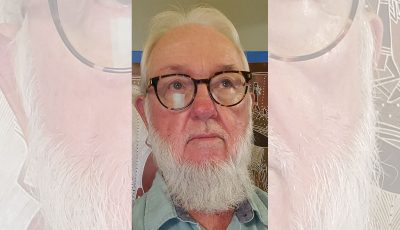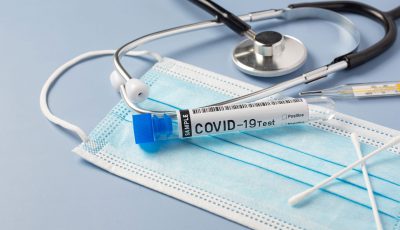Wiseman denies new trial in lawsuit of woman injured from fall at CHC
Judge reduces to $100,000 award instead of the previous $133,140
Superior Court Associate Judge David A. Wiseman has issued an order denying the government’s motion to hold a new trial in a lawsuit filed by Rosa B. Camacho, who was awarded by the court last October $133,140.17 in damages over injuries she suffered from a fall at the Commonwealth Health Center due to a water leak.
In the order issued on Thursday, Wiseman, however, granted the government’s request to amend the previously ordered judgment regarding damages as required by the Government Liability Act.
Wiseman said it is necessary to amend or alter the judgment regarding damages in order to correct a clear error and prevent a manifest injustice to defendants.
The Act limits the judgment to $100,000 in other tortious occurrences.
In a separate order he issued also on Thursday, the judge amended the previous judgment to reflect compliance with the Government Liability Act. From the total damages award of $133,140.17, he said the amount is now $100,000.
Wiseman said the $100,000 award includes $97,084.83 in noneconomic damages—for past and future pain and suffering, as well as loss of enjoyment of life. The said noted that this is a reduction of $33,140.17 from the original award of $130,225.
Wiseman said the $100,000 also includes $2,915.17 in special, economic damages, reflecting the $720 awarded for future physical therapy, plus the stipulated CHC costs of $1,501.17 as well as $694 for pain relieving products.
On the new trial issue, Wiseman said he finds the amount awarded to Camacho not to be excessive in light of the court’s calculation and use of its sound discretion in accepting and rejecting certain figures to be awarded when viewing the cases in the totality of the circumstances presented at trial.
Wiseman said he finds that no clear error has occurred in failing to explicitly find and clearly calculate comparative fault, as its reduction from the total amount requested by Camacho reflects any fault or aggravating circumstances attributed to her as proven by evidence presented at trial.
Wiseman said he finds it unnecessary to address defendants arguments CHC and Department of Public Health and Environmental Services regarding Camacho’s testimony, as the court already found—in its June 30, 2013 order—that the court did not err in finding a lack of credibility, and it properly took plaintiff’s lack of credibility at trial into consideration in rendering its final judgment on damages (as so reflected in the court’s ultimate reduction of the total award by more than 50 percent).
On Nov. 22, 2013, defendants, through assistant attorney general David Lochabay, filed the motion, claiming that “the court made clear errors in the conduct of the trial… which, without correction, constitute a manifest injustice to the Commonwealth defendants.”
Lochabay argued that the court “must alter or amend the judgment to conform to the requirements of the Government Liability Act,” or specifically limit the judgment to $100,000.
Second, Lochabay claimed that the noneconomic, non-punitive damages awarded in the underlying case were excessive, and pointed the court to various sources and cases from other jurisdictions, as there are no similar cases within the Commonwealth.
Third, defendants claimed that the court did not apply comparative fault, and that the court disregarded Camacho’s testimony.
Lochabay asserted that these alleged oversights constitute clear error, and thus they are entitled to a new trial.
Camacho, through counsel David Banes, opposed the motion on the basis that each of defendants’ arguments are without merit. Banes argued, among other things, that the court’s noneconomic damages award is not excessive, and that the court applied comparative fault when it reduced the total amount of damages awarded by 50 percent.
Banes conceded in the application of the Government Liability Act as to the $100,000 cap on the amount of damages recoverable from a governmental entity.
Wiseman heard the motion last Jan. 9.
In his order issued yesterday, Wiseman said in finding that defendants are a government entity, the court should have—and likely would have, had defendants put it on notice and requested so—properly applied the standards of the Government Liability Act to the judgment entered as to damages in the underlying bench trial.
Wiseman said he does not find that the final damages amount awarded to Camacho fails to meet any of the subjective tests contemplated by the CNMI Supreme Court, especially in the absence of any similar cases from this jurisdiction.
Camacho requested $384,895.17 in total damages, but she ultimately asked only $290,720.17 after she agreed a 25 percent reduction in her award of pain and suffering and loss of enjoyment of life damages because of other aggravating factors regarding her condition.
Defendants CHC and Public Health argued that Camacho suffered several incidents after the fall a few years ago which aggravated her condition.



























